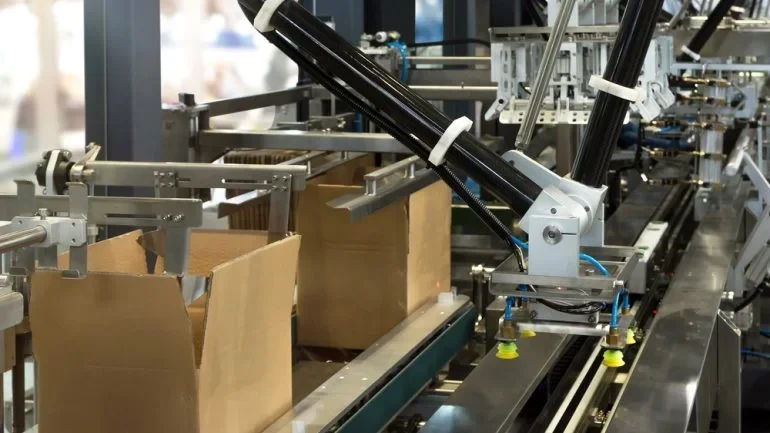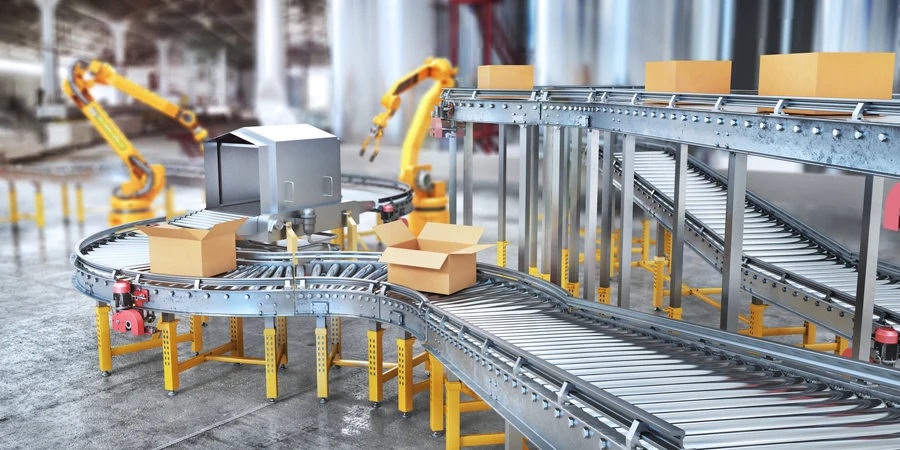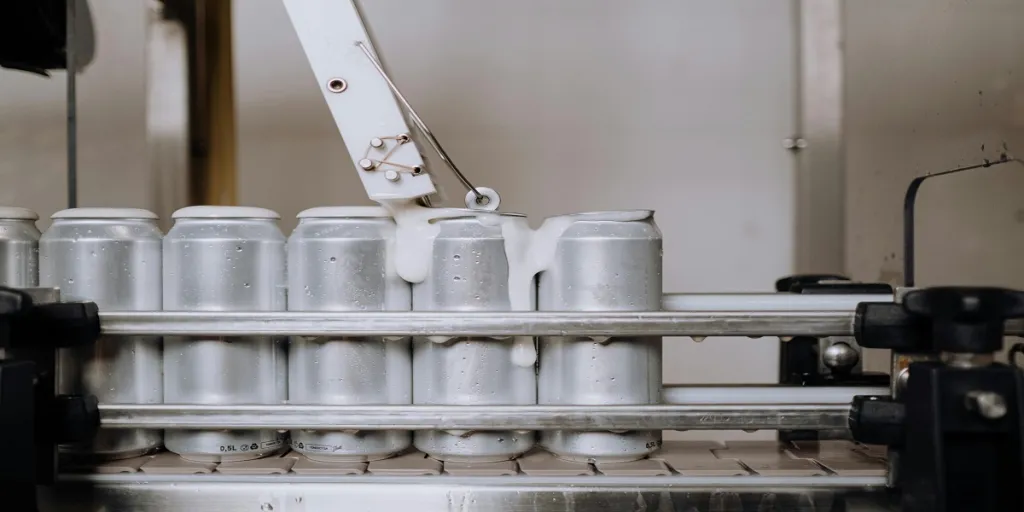The rise of automation is enhancing efficiency, lowering costs, and reshaping roles across supply chains, from production to distribution.

The packaging industry is one of many that has borne witness to incredible, transformative digitisation and automation in recent years.
Manufacturers and producers worldwide have become increasingly reliant on sophisticated, innovative automated technology to inspire new product development efficiency enhancements and ideations, while reaping the benefits of cost savings due to less human or manual intervention.
However, the impact of these widespread advancements isn’t exclusively limited to packaging producers or manufacturers. Automation is also reshaping the role of wholesale distributors, another crucial component of worldwide supply chains.
Evolving wholesale packaging spaces
Wholesale product distributors play a vital part in connecting suppliers with buyers, whether acting as an intermediary or proverbial ‘middle person’, aggregating orders, managing inventory, or providing logistics services.
They encompass a broad range of businesses based on their distribution network, locale, product type, and relationship to their buyers and suppliers, if they have any. Tens of thousands of wholesale businesses sit in supply chains worldwide, with such businesses ranging broadly from artisan bread roll suppliers in the UK to luxury textile distributors in South America.
The salient point is that wholesalers’ involvement ensures a more seamless transition from manufacturers packaging products and materials to delivering them to end users.
Having said this, as consumer expectations have changed rapidly post-COVID, and as market dynamics have evolved, wholesale distributors must embrace automation to avoid falling behind. They are under increased pressure to adapt and refine their strategies to keep supply and demand at equitable and manageable levels, which is easier said than done.
The rise of e-commerce in particular has been a major disruptive force for wholesalers, but also has presented numerous opportunities for wholesalers to adapt to new market and consumer demands more strategically.
Retailers, predominantly in the packaging and logistics sectors, now expect faster response times, flexible order fulfilment, and greater transparency into stock levels. Meeting these demands can be challenging for wholesalers relying on tried-and-tested manual processes and legacy systems, but automation can be the answer to unlocking and taking advantage of these new opportunities.
Which wholesalers can benefit from automation?
While classifications may vary, wholesalers typically sit in a loosely defined category of suppliers. Wholesalers may purchase goods in bulk and often import products for resale, and they can often be classified by factors such as location, distribution network or the types of goods they provide.
Classifying the types of wholesalers that can benefit from automation requires looking at their current short- and long-term challenges.
For instance:
- Local or regional wholesalers are usually based in the same region as their buyers (and suppliers if they use them), meaning that they need to automate processes to upscale and grow.
- Meanwhile, national and international wholesalers export products globally but may have identified new buyer markets to target, which is made easier with automation.
- Many wholesalers can automate the supply and distribution of non-critical or routine goods (those defined by the NPSA as those with low profit margins and are readily accessible).
- Wholesalers can utilise technology to revamp and improve the regularity and schedule of services, meaning they can fulfil more orders.
- Remote wholesalers can leverage digitisation and technology to work and distribute products anywhere with no physical presence needed. They may need to automate routine and manual processes to maximise resources.
Whether they are local or remote suppliers providing non-critical, routine or perishable goods, or are national or international and supply strategic commodities, any wholesaler can benefit from automation.
What are the benefits of wholesale automation?
Integrating automation and emerging artificial intelligence (AI) solutions into their operations can allow wholesalers to unlock a range of business-transforming benefits.
1. Increased efficiency and productivity
Automation can help wholesalers see dramatic increases in productivity and efficiency. By automating repetitive and time-intensive tasks such as inventory management, invoicing and order processing, wholesalers can reduce the risk of human error and free their teams to focus on more high-value activities.
For example, robotic process automation (RPA) can be a tremendous time- and resource-saving solution for order fulfilment and verification while reducing order-to-delivery time and keeping accuracy high.
2. Cost savings and improved profitability
Automation is often correlated with short- and long-term cost savings for wholesale packaging distributors in the retail space. Automating labour-intensive tasks can reduce wholesalers’ reliance on manual labour and, thus, lower their overhead expenses. Automating the balancing of accounts payable and accounts receivable also means the risk of financial inaccuracies in invoicing is lowered.
Leveraging automated predictive analytics can also help wholesale distributors make more informed pricing decisions, adjusting rates based on market conditions and customer demand. Automatic order management also enables faster and more reliable order fulfilment, directly improving customer experiences.
3. Greater stock visibility
Wholesale distributors can leverage automation to enhance inventory management. With the help of real-time asset management solutions and enterprise-grade tracking technologies, facility managers can gain greater control and visibility over their asset locations, history, and movements.
With this enhanced oversight, wholesalers can reduce the risk of over or understocking assets, using real-time data to optimise their storage and transport processes, while managing costs.
4. Sustainability
Making supply chains more transparent and sustainable is another top priority for retail buyers and suppliers, and wholesalers can leverage environmentally-friendly packaging and fulfilment processes with the help of automation. In turn, this will help them gain a distinct competitive advantage.
Integrating Internet of Things (IoT) technologies with wholesalers’ procurement and logistics workflows can allow them to optimise transport routes to minimise emissions, and ensure compliance with sustainability standards.
Overcoming the barriers to wholesale automation
Despite the clear benefits of automation, many wholesale packaging distributors may still need to be more open to embracing these transformative technologies.
Wholesale facility employees may be hesitant to adopt new automated systems in favour of manual processes, fearing a loss of control and long-term job displacement (a hot topic given the emergence of AI). Integrating automation solutions with incumbent IT systems and resources can be complex and time-consuming, often requiring careful resource planning ahead of time.
Not only this, but the upfront costs associated with upending infrastructure and operations can be high, requiring a substantial investment from the outset. Many wholesalers may also lack the in-house technical expertise to deploy and test automated systems without external assistance.
To overcome these obstacles to unlocking the power of automation, wholesale distributors should take a strategic, phased approach. This will involve:
- Conducting a rigorous assessment of their existing processes
- Identifying the most promising opportunities for automation
- Choosing flexible, scalable automation platforms that suit their needs the best
- Testing solutions to ensure they can seamlessly integrate with their existing systems
- Investing in comprehensive employee training and change management initiatives to ensure a smooth transition
By addressing these implementation challenges proactively, wholesale packaging distributors can unlock the full potential of automation and strengthen their position in global supply chains.
Furthermore, they can position themselves for long-term success in a market poised for continued turbulence in the coming weeks and months, while driving improvements in distribution and packaging efficiency, sustainability, customer experience, cost savings, and inventory control.
About the author: Annie Button is a freelance writer based in the UK. She specialises in business development, sustainability, digital trends, marketing, and HR.
Source from Packaging Gateway
Disclaimer: The information set forth above is provided by packaging-gateway.com independently of Chovm.com. Chovm.com makes no representation and warranties as to the quality and reliability of the seller and products.




